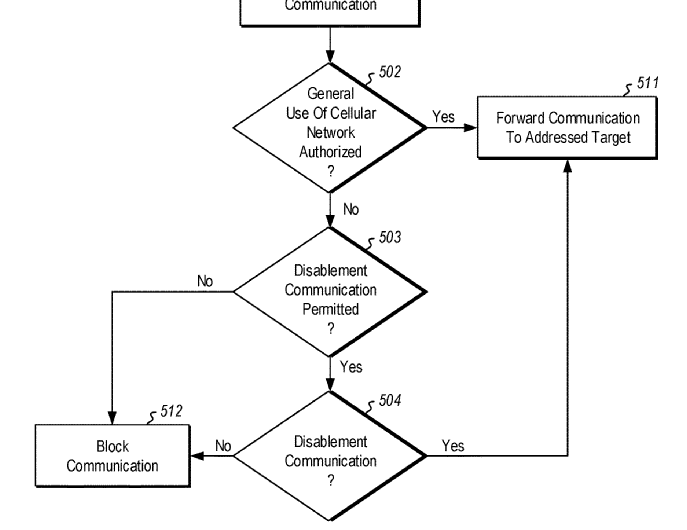June 27, 2017 weblog
Patent talk: Microsoft looks at how to thwart laptop thieves

(Tech Xplore)—Oh no you don't. Laptop thieves cannot get far if a Microsoft patent proposal has any say in the matter.
Looks as if Microsoft is thinking along the lines of thwarting those who try to profit off a stolen machine. A patent describing how the approach would stop laptop thieves was filed.
In the patent's brief summary section, it was stated: "At least some embodiments described herein relate to the restricted use of a cellular network to facilitate disablement of a device that is suspected lost or stolen. Accordingly, even if the device is not capable of general use of the cellular network (e.g., due to a physical authentication module, such as a subscriber identity module, being absent and/or due to a software restriction on cellular network access), disablement communications are still permitted across the cellular network. Accordingly, the device may receive a disable command from the disablement service over the cellular network, and acknowledge processing of the disable command to the disablement service also over the cellular network. Thus, efforts by an unauthorized possessor of the device to prevent disablement by removing the physical authentication module are thwarted. Likewise, turning the cellular service off using software settings at the device also does not prevent the device from being disabled via cellular network communication."
The company wants computers to be constantly connected to a cellular network, like smartphones said Aatif Sulleyman, The Independent. He also observed that "The functionality laid out in the patent, which was first spotted by MSPowerUser, appears to be a planned extension of the company's recently revealed vision for 'always-connected' PCs."
Surur, editor in chief, MSPowerUser, said a new Microsoft patent "suggests that signals to lock a PC and disable wiping the device may still be transmitted to a stolen laptop even when it would not normally be able to connect to a cellular network, such as when a SIM has been removed or cellular connectivity has been switched off by the OS, in a similar way to users still being able to make emergency phone calls even when their phone has no SIM."
Simply put, "The patent suggests that the laptop could be wiped and locked through a cellular network," said HotHardware, "without necessarily being connected to it."
Even if the thief removed the physical authentication module or turned off the cellular service of the device, the signal would work. Mahit Huilgol, Technology Personalized, said, "any efforts to remove the SIM or turn off the cellular services is thwarted as the device will still be able to communicate with the owner."
If the patent does turn into something real, the anti-theft approach would need cooperation by parties beyond Microsoft, said reports. "Such a feature would presumably require some agreement between Microsoft and a cellular service provider," said Surur. Deccan Chronicle: "Microsoft will most likely have to sign a partnership agreement with carriers across the world to make this happen."
Laptop owners may have read the patent news and welcomed the suggestions, but a number of writers raised concerns.
Huilgol wrote that "we are not sure how Microsoft will be designing the feature in a way that it's not misused. Considering that the feature is always on, it will be relatively easy to turn the laptop into a tracking device that's used with malicious intent."
Neowin said the patent seemed to have a "downside," being "that users could be easily tracked down even when they are not connected to any cellular network. It is to be seen what impact this could have on protection and users if it gets implemented."
More information: Disablement of Lost or Stolen Device, US20170180530.
© 2017 Tech Xplore





















